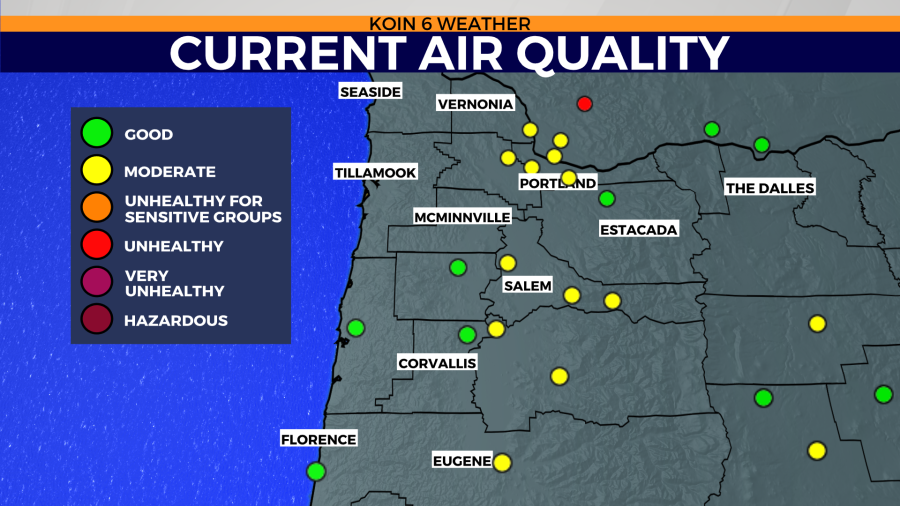PORTLAND, Ore. (KOIN) — As we all tap our feet in practiced patience for our first soaking rain of the month, we can’t escape the local wildfire smoke up above.
After a gusty and dry weekend, improvements came as a marine layer entered the area Monday morning. That is a temporary fix, as the wind will adjust back to our misfortune come Tuesday and Wednesday when that wind will shift the wildfire smoke from east to west, once again affecting the air quality in the region.
With that said, the air quality advisory is extended until Thursday evening. In the graphic below, you can see that this will impact all of the Willamette Valley and also those up in southwest Washington.

Some sites’ air quality dropped to “Good” (green) and “Moderate” (yellow) levels on Monday morning. However, most had crept back squarely into that “Moderate” category by the afternoon.
The air quality closer to the Nakia Creek fire is going to be worse. There are a few sites that are in the unhealthy category in Clark and Cowlitz counties.

Meanwhile in the downtown area of Portland, air quality has been floatubg in the lower end of the moderate category.
We can expect the trend to remain the same in the moderate category or to dip as we get closer to Tuesday and Wednesday. Look for the trend to improve through the weekend, with the emergence of rain.

With the air quality forecast graphic, notice that the higher concentration of smoke and poor air quality is going to be in areas of southwest Washington and into the Gorge. This type of smoke can really cause headaches or just bother those who need to spend some time outdoors.
Just to note, that the weather model isn’t picking up on as much smoke for the central and southern Willamette Valley as of Tuesday morning. However, the engagement of the Cedar Creek fire, should cause some air quality concerns.

You can see the veil of anticipated wildfire smoke in the surface smoke forecast below. With the wind aloft picking up more out of the southeast or even the east, the wildfire smoke will drag across the populated areas of the Willamette Valley. This will indeed result in a hit to the air quality.
